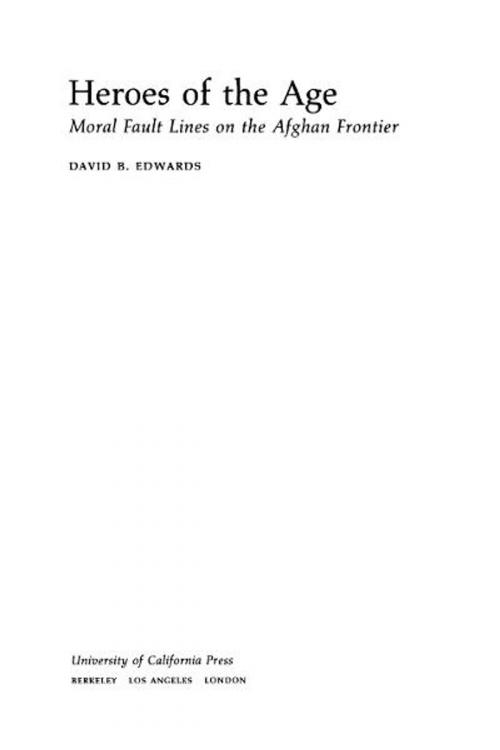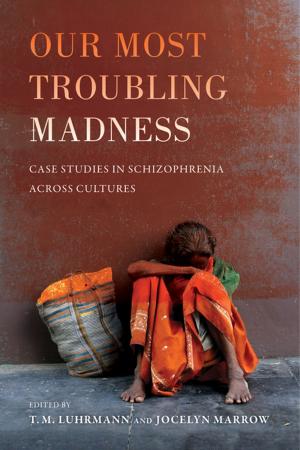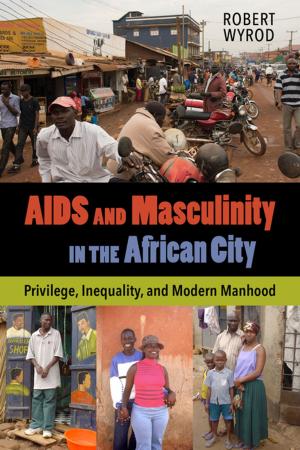Heroes of the Age
Moral Fault Lines on the Afghan Frontier
Nonfiction, History, Middle East, Social & Cultural Studies, Social Science, Anthropology| Author: | David B. Edwards | ISBN: | 9780520916319 |
| Publisher: | University of California Press | Publication: | November 1, 1996 |
| Imprint: | University of California Press | Language: | English |
| Author: | David B. Edwards |
| ISBN: | 9780520916319 |
| Publisher: | University of California Press |
| Publication: | November 1, 1996 |
| Imprint: | University of California Press |
| Language: | English |
Much of the political turmoil that has occurred in Afghanistan since the Marxist revolution of 1978 has been attributed to the dispute between Soviet-aligned Marxists and the religious extremists inspired by Egyptian and Pakistani brands of "fundamentalist" Islam. In a significant departure from this view, David B. Edwards contends that—though Marxism and radical Islam have undoubtedly played a significant role in the conflict—Afghanistan's troubles derive less from foreign forces and the ideological divisions between groups than they do from the moral incoherence of Afghanistan itself. Seeking the historical and cultural roots of the conflict, Edwards examines the lives of three significant figures of the late nineteenth century—a tribal khan, a Muslim saint, and a prince who became king of the newly created state. He explores the ambiguities and contradictions of these lives and the stories that surround them, arguing that conflicting values within an artificially-created state are at the root of Afghanistan's current instability.
Building on this foundation, Edwards examines conflicting narratives of a tribal uprising against the British Raj that broke out in the summer of 1897. Through an analysis of both colonial and native accounts, Edwards investigates the saint's role in this conflict, his relationship to the Afghan state and the tribal groups that followed him, and the larger issue of how Islam traditionally functions as an encompassing framework of political association in frontier society.
Much of the political turmoil that has occurred in Afghanistan since the Marxist revolution of 1978 has been attributed to the dispute between Soviet-aligned Marxists and the religious extremists inspired by Egyptian and Pakistani brands of "fundamentalist" Islam. In a significant departure from this view, David B. Edwards contends that—though Marxism and radical Islam have undoubtedly played a significant role in the conflict—Afghanistan's troubles derive less from foreign forces and the ideological divisions between groups than they do from the moral incoherence of Afghanistan itself. Seeking the historical and cultural roots of the conflict, Edwards examines the lives of three significant figures of the late nineteenth century—a tribal khan, a Muslim saint, and a prince who became king of the newly created state. He explores the ambiguities and contradictions of these lives and the stories that surround them, arguing that conflicting values within an artificially-created state are at the root of Afghanistan's current instability.
Building on this foundation, Edwards examines conflicting narratives of a tribal uprising against the British Raj that broke out in the summer of 1897. Through an analysis of both colonial and native accounts, Edwards investigates the saint's role in this conflict, his relationship to the Afghan state and the tribal groups that followed him, and the larger issue of how Islam traditionally functions as an encompassing framework of political association in frontier society.















